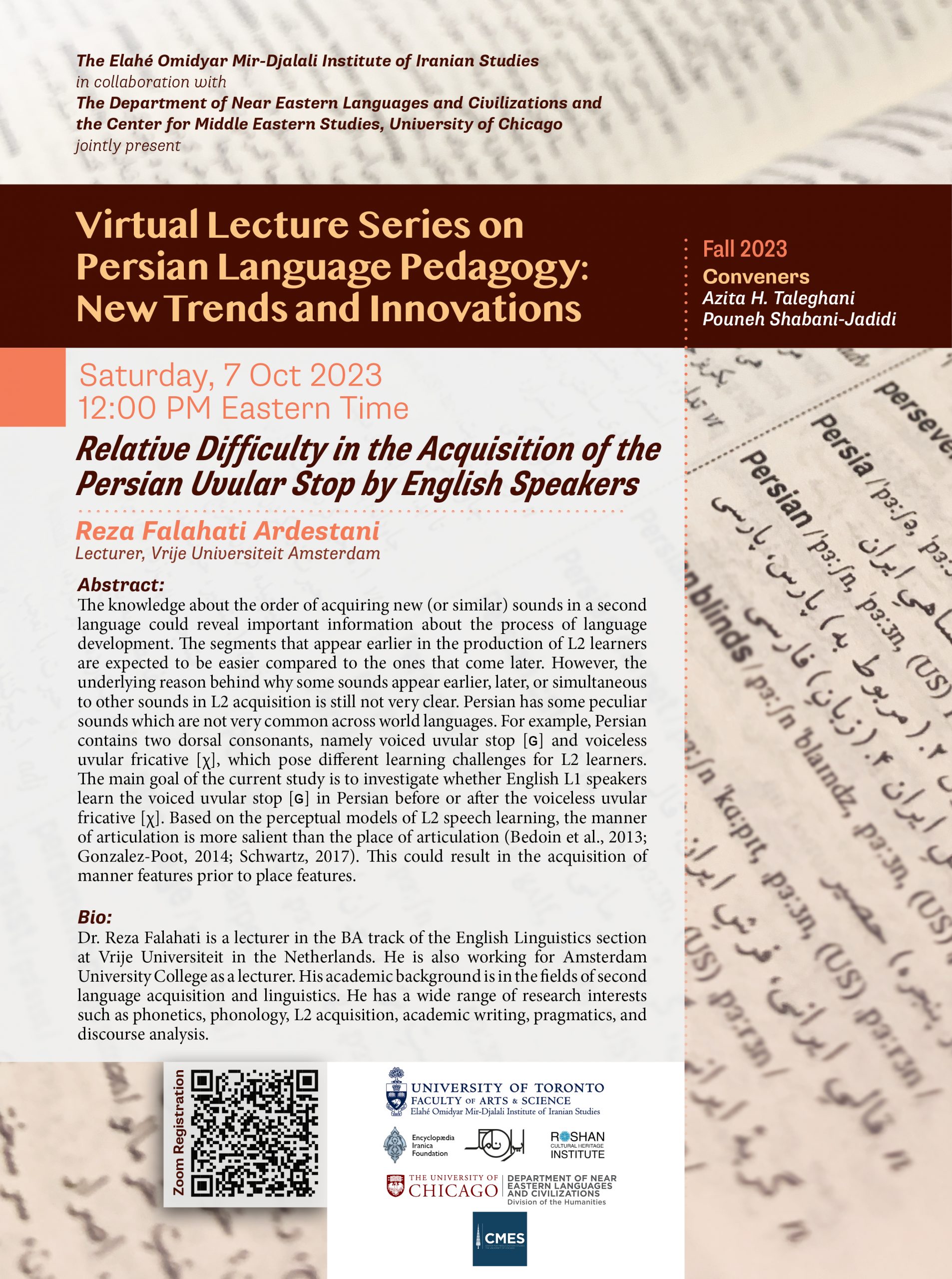

The Elahé Omidyar Mir-Djalali Institute of Iranian Studiesin collaboration withThe Department of Near Eastern Languages and Civilizations andthe Center for Middle Eastern Studies, University of Chicago jointly presentRelative Difficulty in the Acquisition of the Persian Uvular Stop by English SpeakersReza Falahati Ardestani, Lecturer, Vrije Universiteit Amsterdam Saturday, 7 October 2023, 12:00 p.m. Eastern Time (Canada and US) Zoom Meeting Registration:https://utoronto.zoom.us/meeting/register/tZMkf-yoqDwrEtRnTBB_LZR6s8lKntJmiaHV
After registering, you will receive a confirmation email containing information about joining the meeting.
Abstract:
Knowledge about the order of acquiring new (or similar) sounds in a second language could reveal important information about the process of language development. The segments that appear earlier in the production of L2 learners are expected to be easier compared to the ones that come later. However, the underlying reason behind why some sounds appear earlier, later, or simultaneous to other sounds in L2 acquisition is still not very clear. Persian has some peculiar sounds which are not very common across world languages. For example, Persian contains two dorsal consonants, namely the voiced uvular stop [ɢ] and voiceless uvular fricative [χ], which pose different learning challenges for L2 learners. The main goal of the current study is to investigate whether English L1 speakers learn the voiced uvular stop [ɢ] in Persian before or after the voiceless uvular fricative [χ]. Based on the perceptual models of L2 speech learning, the manner of articulation is more salient than the place of articulation. This could result in the acquisition of manner features prior to place features.
Bio:Dr. Reza Falahati is a lecturer in the BA track of the English Linguistics section at Vrije Universiteit in the Netherlands. He is also working for Amsterdam University College as a lecturer. His academic background is in the fields of second language acquisition and linguistics. He has a wide range of research interests such as phonetics, phonology, L2 acquisition, academic writing, pragmatics, and discourse analysis.